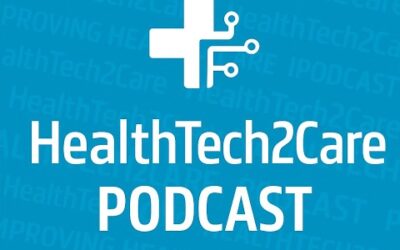EVS Support Through Software
In this fascinating conversation, Allen dives into various topics highlighting the impact of software on the the Environmental Services (EVS) side of a health-system.
He discusses how ReadyList’s technology improves hospital operations while saving time and money by:
- ensuring cleaner and safer facilities
- reducing hospital-acquired infections
- improving onboarding of new staff
- minimizing profit leaks from redoing work or missed surgery opportunities
- providing data for managers to understand and direct their teams
He emphasizes the importance of buy-in from hospital leadership, evaluating processes along with technology implementation, and maintaining a close partnership with clients to continuously innovate based on their needs.
Allen also introduced “EVS Navigator”, a new offering for EVS inspired leaders, meant to help guide them in their EVS healthcare journey. Check it out here: your.evsnavigator.com
The whole point of a hospital is to manage and treat patients at the highest level and if the provideres do their job, which they do… then the EVS service people need to be equipped with the right tools and systems to support them.
A few highlights from the podcast
How does ReadyList help hospitals minimize profit leaks?
Allen: So to me I look at profit leaks in many different ways, like a profit leak that we’re not managing things enough to know that we’re doing things that are more costly, but there’s also the idea of profit opportunities where you miss one of these opportunities and can’t get it back. We try to cover both ends of this spectrum, from a cost perspective we try to provide a way for the cleaners to do their job faster and more efficiently because they know exactly what is expected of them without the guesswork. They have to look at the program and muscle memory eventually comes into play.
The other thing I look at is when the supervisors and managers are actually overseeing their staff and do inspections on these rooms, they can give real time feedback to the cleaners on any areas that could be done better. Sometimes it’s a personnel thing, but sometimes it’s an activity that maybe isn’t very clear to them and they notice across the board that maybe 90% of people are doing it wrong. Is it the cleaner then at this point or is it the action? Maybe the action then needs to be evaluated. So at that point in the sense of the profit leak, the goal is to not have to redo things.
When you clean a room we want it done right the first time, if you have to go back and clean it again it becomes inefficient. That becomes an additional cost that takes away something else from being done that can’t be done now. Or sometimes even the supervisor has to do it, and that’s sometimes what happens you know the supervisor is already there and they end up doing it. Now you have someone at a higher price point doing the work that someone else should be doing. Sometimes you even have the nurses doing it. The nurses are now being taken away from treating the patient because the room wasn’t turned over correctly. Maybe it’s missing equipment, not cleaned properly or just isn’t to the nurses expectations. Now you’re taking the nurse away from treating the patient, to do something that should’ve been done right the first time. So those are 3 sort of areas from a cost perspective.
From a profit perspective, I look at it for example from a surgeon point of view in the OR room, if there’s a planned surgery supposed to happen at 5 am and there’s 8 operating rooms that need to be cleaned that aren’t done on time, they may need to cancel that. That is gone now, you can’t recover that profit. Now you have to reschedule and the spot is taken up by something else. So this is that gain for the hospital that you can’t get back. So that’s the missed opportunity we focus on, making sure those things are ready to go to make the surgery happen, now they can focus on the patient and getting the job done. So I kind of look at it as either a profit opportunity missed or a cost thing to be tightened up.
How do you approach guiding your team to come up with these software solutions to meet the unique needs of the healthcare facilities you work with?
Allen: We’re constantly working with our clients so that together we’re able to come up with these ideas. We have such a good connection with them that we almost look at them more like business partners, they’re constantly uncovering opportunities to make their lives better and the patient’s lives better and even increase their HCAHPS scores. A lot of it comes from being close knit with them, and sometimes they’ll come up with something and we’ll come back with them like, “Oh did you think of this?” It’s a very good collaboration between us and our clients on that and I empower the team to do that, like don’t wait for me. I encourage them to constantly find ways to support our clients, and out of that sometimes comes new technology that helps develop both our systems and the current and even future clients. We like that too, we’re very engaging with them and it really aligns with the culture we have.
EVS Navigator for EVS Managers
Through FREE one-to-one coaching, we guide EVS managers towards leading teams with understanding, efficiency, and a strong sense of teamwork.



